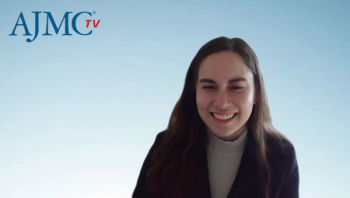
Frailty Definitions Too Imprecise in Patients With MM, New Paper Suggests
A subset of patients with multiple myeloma (MM) are not eligible for the most effective therapies, but a new study suggests clinicians may be inaccurately defining that subset.
Precision medicine has brought about new treatment paradigms for patients with
The problem, according to
As more and more people live longer, cancer among the elderly is expected to be a significant public health burden. Higher rates of MM is one likely outcome, as two-thirds of patients with the cancer are aged 70 or older at diagnosis.
While novel biologic agents have led to better overall survival in patients with MM, older and unfit patients deemed ineligible for stem cell transplantation have not benefited from these novel agents to the same extent.
“These patients do not have a greater incidence of molecularly high-risk disease and so these differences are likely to be accounted for by differences in patient physiology, increased treatment-related toxicity limiting delivery of effective therapy and less effective, rigorous anti-myeloma treatment being given (undertreatment),” wrote corresponding author Gordon Cook, PhD, of Leeds University, and colleagues.
With such a disparity of outcomes, it has become critically important to correctly categorize patients so that those who can tolerate the optimal therapy are given it, and those too frail can be given less-toxic personalized treatments. The problem is that it can be difficult to accurately identify which patient belongs in which category.
Life expectancy can vary significantly among older patients with MM, suggesting that chronological age alone is not a sufficient indicator to categorize a patient as highly vulnerable.
In other words, Cook told The American Journal of Managed Care®, a significant number of patients are being classified as as transplant non-eligible (TNE) based largely on their age, even though they could in fact tolerate therapy.
Cook and colleagues wrote that the solution is to develop better ways to assess physiological age in patients with MM, as well as their ability to deal with the burden of MM and therapy for MM.
The authors said the International Myeloma Working Group’s (IMWG) frailty scoring system remains the standard approach. However, they said the system needs to be refined, including with prospective testing of potential biomarkers of frailty. The idea of using biomarkers to assess frailty and vulnerability in a cancer setting is still new, but Cook and colleagues believe it has strong potential. In their report, they argued systematic testing of such biomarkers is needed, so that eventually biomarkers can be recommended not only as prognostic tools, but also as predictive tools.
Cook and colleagues said the United Kingdom’s Myeloma Research Alliance (UKMRA) has developed a
“Hopefully we are approaching a time where such measurements, once validated prospectively, will be used to direct safe, effective and personalized treatment,” they concluded.
Reference
Cook G, Larocca A, Facon T, Zweegman S, Engelhardt M. Defining the vulnerable patient with myeloma-a frailty position paper of the European Myeloma Network. Leukemia. 2020;34(9):2285-2294. doi:10.1038/s41375-020-0918-6
Newsletter
Stay ahead of policy, cost, and value—subscribe to AJMC for expert insights at the intersection of clinical care and health economics.








